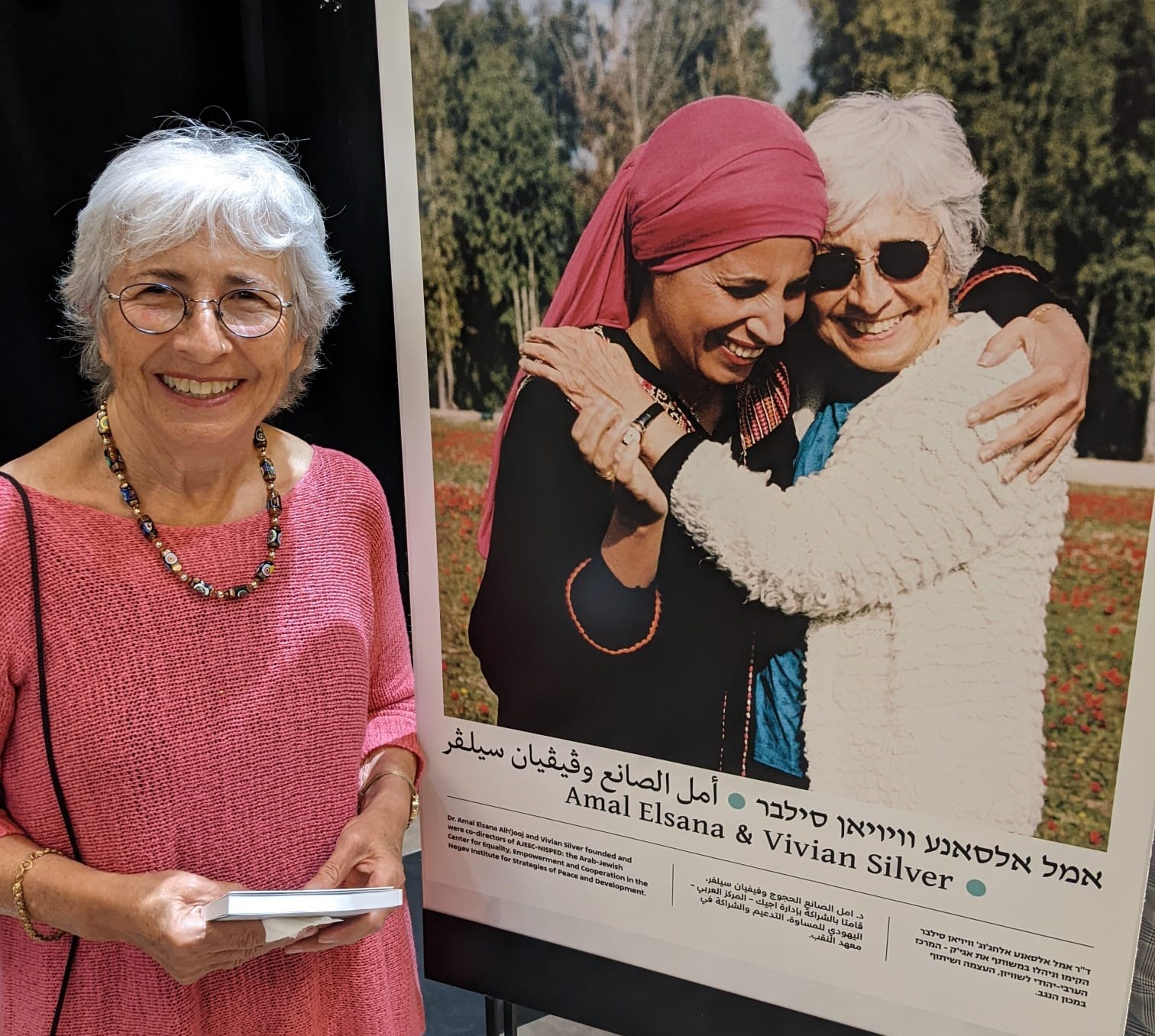
Israel

Humanity and horror: films examine ‘day after’
A father whose daughter was kidnapped by Hamas. The life and death of peace activist Vivian Silver. Humanising the stories of those impacted by 7 October, two upcoming documentaries also delve into questions about Israel’s future.
In a webinar hosted by Habonim Engaging in Dialogue on 28 July, the documentaries’ filmmakers and some of their interviewees shared their experiences. For United States-based filmmaker Lance Kramer, his as-yet unnamed documentary grew out of the immediate aftermath of 7 October. Together with his brother, Brandon, and friend Yoni Brook, Kramer decided to explore the story of American Israeli Yehuda Beinin, whose daughter Liat was kidnapped by Hamas and returned 54 days later. It was eventually discovered that Liat’s husband, Aviv Atzili, also initially believed to have been kidnapped, was killed on 7 October.
“When we spoke to Yehuda, to whom we’re related through marriage, we learned that Liat and Aviv were missing,” Kramer recalled. “From initial conversations emerged the importance of trying to tell a story about what the family was going through, which was something Yehuda remarked no one would believe. We did this in an intimate and nuanced way that could shed light on what a family of hostages was experiencing.”
As Beinin and his kidnapped daughter are American Israeli citizens, not only were they thrown into the middle of the hostage crisis and the war, but also the relationship between the US and Israel. “In the immediate aftermath of 7 October, Yehuda, his other daughter, Tal, and his grandson, Neta, were among some of the first families to come to the US to try and engage with the government,” Kramer said. “We thought what the family was going through at that time was something that would be important for people to see and understand better.”
Beinin said that the days immediately following 7 October were a blur. Yet he does recall how most people initially believed that the hostages would be returned within a week or two and that everything would be fine. As Liat is a history teacher, he embraced the idea of making a documentary for posterity, something they could one day show to her kids or future grandchildren.
“Obviously as time went by, the seriousness of the issue became clear,” he said. “The documentary ended up being among other things a memorial to my daughter’s husband, Aviv, so there’s a great deal of personal significance.”
He also speaks of the broader political ramifications of his experience. “I was inspired by the words of US President Joe Biden, who spoke to the American hostage families on 13 October and laid out his plan, which hasn’t changed very much since. He recognised that this event was an inflection point in history. ‘What was is not what will be’ were his exact words, as he talked about the diplomatic process.”
Beinin spoke of the threat of “fanatic, religious Messianists” like Israeli politicians Bezalel Smotrich and Itamar Ben Gvir, who he said posed a danger to Western civilization and were cut from the same cloth as Hamas leader Yahya Sinwar. “We need to understand the nature of this threat and what their agenda means for the future of Israel. They need to be stopped,”
Yet, Beinin said, many Israels are deaf to this threat. “I was looking forward to the ‘day after’, when we could initiate some kind of change, a different paradigm to what Israel had witnessed,” he said. “The documentary has taken on that aspect.”
Kramer said it was in the human story that social lessons could be learned. “There’s power in being reminded that this is a complicated conflict but at the centre of it is people. Just as no two families are the same, no two people are the same. That seems like something that’s particularly threatened in the midst of all the polarisation and populism. This is something we feel particularly in the US, where those dynamics are quite intense.”
The innately human stories of Canadian Israeli feminist peace activist Vivian Silver and those she helped inspired Emmy-nominated Israeli filmmaker Hilla Medalia to make her documentary, still in progress. “It was a film I really wanted to make, firstly because of what happened on 7 October, but it’s also a film about peace and feminism,” Medalia said.
Lynne Mitchell, a Canadian childhood friend of Silver’s who was interviewed in the documentary, gave insight into the beginnings of Silver’s calling to leadership and activism. She spoke of Silver’s leadership in Jewish youth movements, particularly those focused on young women.
Medalia said Silver traversed two worlds in the Middle East. “Vivian was, on the one hand, a Zionist, but on the other, she did so much for Palestinians living in Israel and in the West Bank and Gaza. I started filming before we knew she’d been killed. As I was speaking to her sons, I was hoping that she would be back and would agree to participate.” Medalia said that filming Silver’s memorial was an inspiring moment because of the multiple backgrounds of those that attended, from Arabs to religious Jewish women. “I looked around and thought maybe there’s the possibility of figuring out how we can all live together in this complicated place.”
Medalia also highlighted the contrasting impact of the events of 7 October on Silver’s family and friends. “Vivian’s son, Yonatan, who is featured in the film, quit his job to dedicate his life to peace building. Yet one of her friends from the kibbutz suffered major trauma and is no longer sure if peace is possible.”
Ultimately the film delves into Silver’s life but also tries to examine where Israelis go from here, Medalia said. “It’s about the effect of Vivian’s work and how she touched so many people. We’re hoping this will be an inspiration and make people look at others like she did, even while she was so rooted in Israel.”










